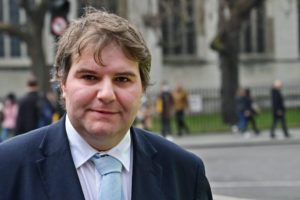In 1515, Pope Leo X issued a papal bull stipulating that all published material translated from Hebrew, Greek, Arabic and Chaldaic into Latin, or from Latin into the vernacular, should be moderated by sensitivity readers. Without such precautions, the document declared, harmful content and fake news would flourish. Printers would be free to pollute the reading public with books “which not only fail to edify, but promote errors in faith as well as in daily life and the mores”.
Back in early 2020, media pundit Jeff Jarvis cited this moment in a critique of the UK Government’s proposed Online Harms Bill. “I value freedom of expression,” he tweeted. “I value voices too long not heard in mass media, finally able to speak. I value new perspectives.”
This enthusiasm for freedom of expression, new perspectives, and the amplification of unheard voices has travelled some distance in the intervening time. When Elon Musk launched his hostile takeover bid for Twitter last week, he explained that he was motivated by a desire to protect the platform as an outlet for “free speech”, which he views as “a societal imperative for a functioning democracy”. In response, Jarvis compared the site to a glittering bubble of freedom, on the eve of fascist rule: “Twitter feels like the last evening in a Berlin nightclub at the twilight of Weimar Germany”.
No one could be faulted for experiencing mild whiplash here. For until recently, enthusiasts of digital culture thought of the internet not as a monster liable to turn fascist if left uncontrolled, but as another loosening of the strictures on knowledge and belief, a long easing that began with the Gutenberg Bible..
The story of that era was a growing pluralism of viewpoints, and the attendant democratisation of politics. When Whole Earth Catalog founder Stewart Brand declared in 1987 that “information wants to be free”, he drew on several centuries’ worth of knowledge overcoming censorship, in the interests of open discussion. As part of the same process, too, the Church’s failure to control doctrine resulted in a proliferation of religious dissent, which morphed over time into a growing body of resistance to the idea of faith full-stop.
But today, with observant Christianity in precipitous decline across the West, the kind of censorship Leo X sought to impose in the name of that religion is back with a vengeance — powered by the same liberals who not long ago cheered its decline. For as Covid has accelerated our transition from a print to a digital world, it is becoming increasingly clear that online publishing isn’t a push towards ever greater freedom of information. Rather, as the hyperabundance of opinion on the internet produces increasingly lurid real-world political effects, progressive public intellectuals are rushing to fill the moral vacuum left by the death of God. In other words: imposing order on the torrent of ideas.
Information liberalism was already in trouble in 2016, when Brexit and the election of Donald Trump made it clear that freeing information didn’t always produce progressive results. Perhaps, respectable voices began to suggest nervously, all this fake news and misinformation means more discourse isn’t always better.
Since then, ever more of our public life has been forced online. And with it, information management has intensified and grown more organised. Facebook has censored anti-vaccine content; UnHerd interviews and even British MPs have been removed from YouTube; “free speech” messaging app Parler was kicked off Apple and Android platforms after the Capitol riot; Donald Trump was banned from Twitter; what turned out to be a true story about Joe Biden’s son was censored at a delicate moment in Biden’s election campaign.
In the digital age, then, the right side of history no longer wants to free information, but to curate the right message. To that end, many erstwhile cheerleaders of free speech have pivoted to claiming for themselves the place of those bishops and inquisitores haereticae pravitatis Leo X tasked in 1515, with controlling what could be published.
Perhaps the first thinker to notice the contemporary re-emergence of coordinated moral management is the neoreactionary writer and ‘Jacobite’ Curtis Yarvin. In a more or less explicit nod to the world of Leo X, Yarvin describes what he calls “the Cathedral” as comprising “all the modern world’s legitimate and prestigious intellectual institutions”: the politicians, journalists, academics, creatives and the institutions that amplify and grant them authority.
From a Yarvinesque perspective, it’s easy to see why Twitter is being so zealously defended against the threat of Musk-imposed free speech absolutism. It’s home turf for this elite, a fact that gives the platform outsize influence, despite its relatively low membership compared with (say) Facebook. And by dint of its concentration of elite tastemakers, it is a key terrain where consensus takes shape on the political issues of the day.
As one journalist put it, “Twitter is where journalists congregate and do a lot of their work.” And this consensus-making machine really doesn’t want to be at the mercy of Elon Musk. But this isn’t because he might imperil free speech. Rather, the first problem is that he might enable it, making Twitter less capable of expelling ideological interlopers and propagating a clear moral consensus.
Washington Post columnist Max Boot gave perhaps the clearest expression of this view, when he confessed himself “frightened by the impact on society and politics if Elon Musk acquires Twitter”. Boot is frightened not because Musk might be too repressive, but because he might not be repressive enough: “For democracy to survive,” Boot believes, “we need more content moderation, not less.”
MSNBC’s Mika Brzezinski, meanwhile, said the quiet part out loud. Her concern was that Musk might use Twitter “to control what people think” — and that, she said, “is our job”.
But one crucial difference emerges between the information-managing popes and inquisitors of the postmodern age, and those of Leo X’s time. Clerics in the premodern world had a healthy appreciation for the role of earthly kings, as expressed in the New Testament injunction to “Render unto Caesar the things that are Caesar’s”. But if the reaction to Elon Musk’s bid for Twitter tells us one thing, it is that our emerging postmodern priesthood rejects out of hand the legitimacy of any individual earthly Caesar.
For I’m not the first person to have noticed that what Wesley Yang calls “the vertically integrated messaging apparatus” has a political counterpart: something that has been described as “NGOcracy”. That is, a layer of political agency that operates, increasingly overtly, above or prior to the democratic process.
Comprising extra-political structures such as tech firms, courts, NGOs, political treaties, foundations and international bodies, this governance layer operates by pre-shaping the political environment and Overton window via mechanisms such as regulation, funding bodies, nonprofits and supranational treaties.
This ecosystem is as dedicated as media and the academy to expelling ideological interlopers, as demonstrated by the howls of rage when centre-right political scientist David Goodhart was appointed to the Equalities and Human Rights Commission last year — or indeed the deafening four-year screech when Donald Trump was elected to the White House. As Yarvin describes “the Cathedral”, this supra-political NGOcracy coordinates apparently seamlessly to this end across countless ostensibly independent institutions. And this coordination it is inseparable from the matrix of digital consensus-formation — for which Twitter is a central crucible.
It is common today to see references to “democracy” as being threatened, for example by Putinist propaganda. But we only have to look at the acres of print devoted post-Brexit to questioning the judgement of the British electorate, to see that our moral betters don’t place much faith in the voting public. Waning elite confidence in electoral democracy is mirrored by popular cynicism about elected leaders. And widespread decline in trust for the democratic process is most pronounced among the young, a fact suggestive of our likely direction of political travel, as these young adults become mature people with serious power.
Against this backdrop, it is increasingly clear that the “democracy” under threat by, say, Putin or a Canadian trucker protest isn’t the electoral stuff. Rather, it’s the digital-era order of decentralised, self-coordinating, swarm governance. And from the perspective of “democracy” in this sense, the problem with Musk owning Twitter is not even that he might allow too much free speech on the platform. It is that there is only one of him: his authority is not distributed.
From this vantage point, the predatory investment firm BlackRock appears less malign than the world’s richest individual, simply because it is owned by shareholders rather than a named individual. Far better, as one commenter suggested, to have Twitter’s ownership in the hands of hedge funds than under the control of “one ultra-rich white guy”.
So the deeper battle over Twitter isn’t about free speech at all. That ship has long since sailed. Rather, it’s a fight for control of a key crucible of political consensus-formation, between those who prefer power to be vested in named individuals, and those who prefer to be ruled by self-organising swarm.
The lines are drawn between, on the one hand, those who hint — like the US Senate candidate JD Vance — at replacing what is left of electoral democracy with some kind of Caesar: perhaps, as Yarvin has suggested, even Elon Musk. And on the other, the artist formerly known as democracy: now an aggregate of pre- or supra-political institutions so averse to individual human authority it would rather see us ruled by a Twitter consensus, or by a hedge fund. Or, maybe, the most elegant solution of all: by an algorithm.
Disclaimer
Some of the posts we share are controversial and we do not necessarily agree with them in the whole extend. Sometimes we agree with the content or part of it but we do not agree with the narration or language. Nevertheless we find them somehow interesting, valuable and/or informative or we share them, because we strongly believe in freedom of speech, free press and journalism. We strongly encourage you to have a critical approach to all the content, do your own research and analysis to build your own opinion.
We would be glad to have your feedback.
Source: UnHerd Read the original article here: https://unherd.com




